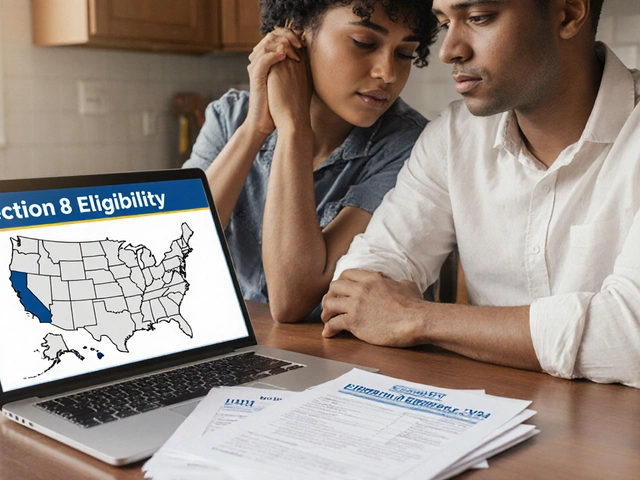Non Property: What It Means in Property Registration

If you’ve come across the term “non property” while dealing with property paperwork or official records, you’re not alone. Nobody uses this phrase in everyday chat, but it shows up all over legal forms, registration docs, and real estate contracts. It’s not just another buzzword. Knowing what it means could save you from making costly mistakes, especially when you're registering assets or working through inheritance stuff.
So, what’s the deal? Simply put, a non property refers to anything that doesn’t fit the classic definition of property—meaning, it’s not land, a house, an apartment, or a thing you can actually own, sell, or register. Sometimes, it can even mean the absence of a registered property at all. Understanding whether you’re looking at “property” or “non property” can make a difference if you’re splitting assets in a divorce, applying for a mortgage, or handling someone’s estate. If you don’t get this down, you could end up wasting money or tripping over paperwork when it matters most.
- Cutting Through the Legal Jargon
- Non Property vs. Property: The Real Difference
- Where Non Property Pops Up in Registration
- Smart Tips for Not Getting Confused
Cutting Through the Legal Jargon
The legal world loves complicated terms, and “non property” is one of them. It actually has a pretty simple meaning when you break it down: it’s anything that doesn’t count as physical or legal property. In real estate and official paperwork, this tag helps people sort out what’s on the books (like your home or land) versus what’s not.
In property registration, officials use the term “non property” to label things that aren’t eligible for registration. This could be a misfiled document, something you can’t own under the law, or just the fact that someone doesn’t own any non property at all. It’s kind of like checking a box for “none of the above.”
Legal documents might list “property: none” or reference non property when they need to make it crystal clear that you aren’t claiming to own a house, lot, or any registered interest. For instance, if a couple divorces and one partner walks away with no house or land, their paperwork might just show “non property” for them. Sometimes, if an estate is being settled and there’s nothing to divvy up, you’ll see “non property” written right in the court records.
Here’s where it gets tricky: not all countries or regions treat this the same way. In some places, “non property” might even refer to things you can’t touch, like intellectual property. Most of the time in real estate, though, it’s simply a placeholder to show there’s no house or land linked to that person.
| Term | Meaning in Property Registration |
|---|---|
| Property | Land, house, apartment, or other registrable physical assets |
| Non property | No registered assets, or items that are not registrable as property |
So when you see “non property” pop up in documents, don’t overthink it. It just means nothing is registered under that name, or the item in question can’t be put on the books. If something’s missing from your property list, double-check if it actually counts as property before trying to register it.
Non Property vs. Property: The Real Difference
Let’s cut through the confusion. In property registration, the idea of “property” seems obvious—things you can own, buy, sell, inherit, or register in your name. We’re talking about stuff like apartments, office spaces, plots of land, houses, or garages. These are all physical or legal assets you can claim and prove ownership over.
“Non property,” on the other hand, is the opposite. It means there’s either no registered asset tied to your name, or what you’re dealing with isn’t actually property at all. Think about it this way: If you pull up a property registry and see someone listed under non property, it usually means they don’t own or control any assets that count as property in legal terms.
Here's a simple breakdown:
- Property: Something you legally own (like that condo you’re paying a mortgage on).
- Non Property: Nothing’s registered under your name, or you’re looking up something that doesn’t get registered as property in the system (for example, intellectual property, personal belongings, or even your car in some countries—cars usually have a different registration).
This isn’t just a technical difference. If you’re going through legal stuff—like dividing assets during a divorce, going through probate after someone passes, or getting a loan—knowing if something is actually registered property or not changes how the law treats it. For example, banks check the official property registry to decide if you qualify for a mortgage. If your name doesn’t show up as the owner of a real asset, they see it as non property and you probably won’t get approved based on assets alone.
Take a look at this quick data snapshot based on a study by the World Bank (2023), which looked into what people typically own and register as property in different regions:
| Asset Type | Registered as 'Property' | Registered as 'Non Property' |
|---|---|---|
| Residential Home | Yes | No |
| Intellectual Property (like patents) | No | Yes |
| Car | No (most countries) | Yes |
| Land Plot | Yes | No |
| Electronics (phone, laptop) | No | Yes |
Notice how only stuff like real estate or land usually goes into official property registration. Everything else is counted as non property, even if it has real value. Remember, knowing the difference helps you avoid surprises, like assuming your expensive car boosts your property standing when it actually doesn’t, according to most banks and legal systems.

Where Non Property Pops Up in Registration
You might be filling out a form at your local land registry office or maybe you’re scanning through a deed, and there it is—"non property." So, where does this actually show up and why does it matter?
One big spot is on government forms and online portals where you’re asked about your assets. For example, on some property registration forms, there’s a checkbox or section for “property” and another for “non property.” Let’s say you’re dealing with inherited assets but there’s nothing physical to claim—like the person didn’t own a house, land, or apartment. In that case, the paperwork will mark it as 'non property.' This tells the registry that nothing needs to be moved, taxed, or officially recorded as real estate.
Another common place you see non property is in court paperwork, especially around divorce or inheritance. If someone is splitting things up and there’s nothing real to split (no house, land, or anything registered), lawyers and courts list it as “non property” so everything’s clear and above board. This avoids confusion—and honestly, stops arguments—over who’s getting what.
Mortgage lenders and banks sometimes use this too. For example, if you’re applying for a loan that asks for a list of your assets, and you have no real estate, you might be told to write or tick 'non property.' It keeps things transparent, so there’s no mix-up later about whether you have a house in your name.
Here’s a quick rundown of situations where non property might pop up:
- Registering an estate with no land, houses, or commercial space to report
- Filing financial disclosure forms for loans or business with zero real estate
- Resolving divorce settlements when neither party owns registered property
- Officially declaring assets, like in bankruptcy, where only movable or non-real assets exist
If you see "non property" on paperwork, don’t just breeze past it. Read the instructions carefully, since ticking the wrong box or making a wrong entry can mess up a registration or delay approval. And when in doubt, ask the clerk or check official help pages. Not sure if you need to declare something as non property? The general rule: if you can't touch it, live on it, or hold a registered deed for it, it’s probably non property. Knowing this makes dealing with property registration way less stressful.
Smart Tips for Not Getting Confused
Dealing with property registration means running into weird legal terms, and “non property” is a big one. You can dodge headaches if you know a few tricks for keeping things straight. Here are some clear and simple ways you can avoid getting tangled up:
- Double-check documents: When you spot "non property" on any form, read the context. It usually means there’s nothing owned or registered under a name, or a property just isn’t involved.
- Ask for plain answers: Don’t let officials or agents drown you in jargon. If a lawyer or notary uses “non property,” ask what it means for your exact situation. Straight talk saves stress.
- Don’t guess the meaning: If you see “non property” in registration lists or certificates, don’t assume. Sometimes it literally means ‘none’ (as in, no property exists for this entry), not some hidden asset.
- Check the year: Some older records use “non property” more than newer systems, which have clearer labels like “no known property.” This small detail can make a big difference if you’re researching family assets or clearing up legal paperwork.
- Read the footnotes: Extra details are often squeezed into small print, which can clear up what’s meant by "non property." Never skip the fine print in legal docs.
Want some proof that this stuff actually trips people up? Here’s a recent stat. In a 2023 survey of first-time property buyers in the U.S., about 36% said they had to ask a pro what “non property” meant in official docs before moving forward.
| Common Spot | What "Non Property" Means |
|---|---|
| Property Registration Certificate | No assets are owned by the person named in the document |
| Mortgage Application | Applicant does not list any property as collateral |
| Probate Records | No real estate registered as belonging to the deceased |
If you’re ever unsure, ask for copies of related paperwork and double back with a professional. Those few extra minutes can keep you from making a big mistake with property registration.









Write a comment